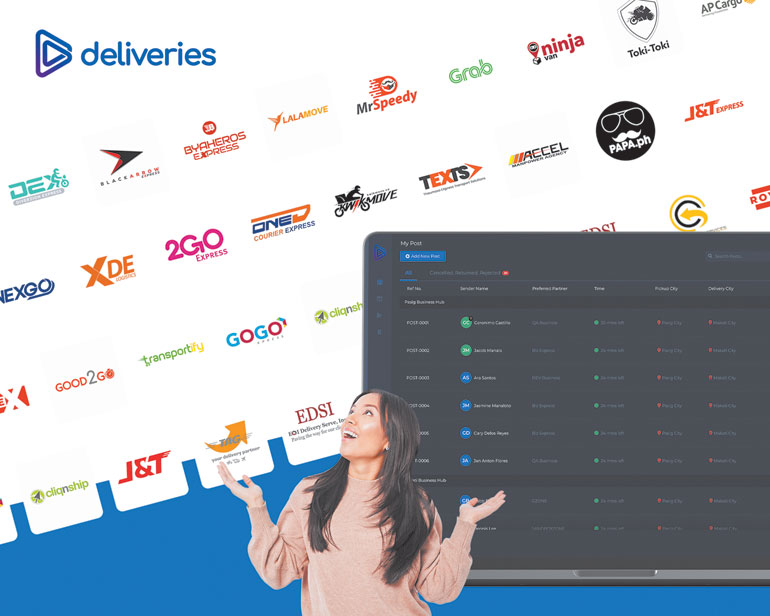
By Chelsey Keith P. Ignacio, Special Features Writer
Delivery services are integral part of online shopping, allowing customers to receive their purchase right at their doorsteps. Hence, amid the COVID-19 lockdowns and safety concerns, e-commerce has grown its relevance. Although the restrictions have begun to ease, many still make purchases in the digital space.
With consumers continuing to shop online, more deliveries for businesses are expected.
“Before the pandemic, most businesses tended to look at delivery services as just an extra revenue stream. Nowadays, most recognize that it is a potent tool not just to survive but thrive,” Jeff Sarmiento, co-founder and head of business of Last Mile, Inc. (LMI), told BusinessWorld.
Mr. Sarmiento also observed that customers now also have higher expectations of their delivery experience. “Everyone is so used to instant deliveries so much so that anything less is perceived as subpar,” he said. “In fact, sometimes, no matter how good your product is, you lose customers out of bad delivery service.”
“Logistics just can’t be ignored.”
But delivery operations could be complicated, especially when businesses handle numerous deliveries in a day while trying to meet customers’ delivery expectations.
“Operational visibility, access to third-party delivery service providers, and availability of in-house delivery assets are key factors that a business has to look into in order to remain competitive in the market — all these while keeping delivery costs in check,” Mr. Sarmiento said.
These three factors are what Last Mile, Inc. aimed to address through its products Fleet.ph, Deliveries.ph, and Riders.ph. The journey of LMI, a digital logistics service innovation company seeking to deal with the core issues of last-mile operations, started in 2017.
LMI began with Fleet.ph, a product it developed when a client wanted to gain visibility in their last-mile delivery operations. After doing proof of operation with the client, the company realized the value of such software, as well as the complexity of the issue.
“From those learnings, we’ve drawn out the blueprint of what products and services Last Mile, Inc. has now, which addresses complex issues in last-mile deliveries including the automation of order-to-fulfillment processes, setting up operational visibility, instant access to third-party delivery services whether on-demand or standard next-day shipping, and even the supply of contract delivery personnel,” Mr. Sarmiento said.
Fleet.ph is now a full-fledged fleet management software, providing last-mile operations visibility and enabling businesses to plan, dispatch, and track riders in real-time. And with such visibility of their operations, they could understand how to enhance their overall performance.
Meanwhile, Deliveries.ph connects businesses to their preferred logistics providers in the Deliveries.ph Provider Network.This on-demand fulfillment service platform is especially helpful as the number of orders to be delivered could vary; so even a business has in-house delivery staff, outsourcing from third parties could help when needed. Hence, this could also support businesses that completely depend on third parties for deliveries.
LMI also offers centralized sourcing and deployment management platform with Riders.ph to attend to businesses looking for help to fill up their in-house delivery staffing requirements. LMI works with reliable manpower agencies to bring in on-demand warm bodies to businesses.
“When used together, all three products create intuitive and seamless last-mile delivery operations. Most of our customers use at least two of our products. From our perspective, we feel that this is a validation of our assumptions from way back when we were designing the blueprint,” Mr. Sarmiento said.
LMI’s platforms have operated a little over 100,000 last-mile deliveries in 2020 and reached 300,000 transactions in 2021. This year, it seeks to accomplish one million deliveries.
The company also plans to make product improvements involving deeper automation, expand its network of third-party delivery service providers, and improve user experience.
“At the end of the day, we’re here to help businesses with their last-mile delivery operations through our platforms — of course, without breaking the bank,” Mr. Sarmiento said.



